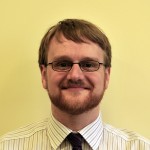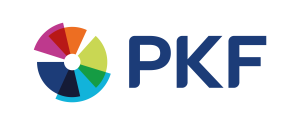Describe a typical week at Eagle Consulting
I work in the Management Accounts department. We provide our clients with management accounts for them to determine which areas of the business are performing/progressing, and where they are losing profits or spending too much. Our client base is hotels, so we have become specialists in offering advice and predicting performance in this industry. I have just left my role in the Purchase Ledger department after nine months and am now training in the Management Accounts area.
Explain your role working in the Purchase Ledger team
While working with the Purchase Ledger team, I was tasked with reconciling all the supplier accounts on the ledger. This involves phoning and emailing suppliers for statements, invoices and credit notes. At work we refer to this as ‘chasing’. We offer a service to our clients; we post invoices to the ledger, reconcile the invoices to statements, provide a list of aged creditors and raise BACS files to pay suppliers following the clients’ approval.
And working in the Management Accountants department?
I have begun preparing sets of accounts. This involves bank reconciliations, accruals and prepayments, income reports and finalising a balance sheet and profit and loss account. Sometimes this involves discussing the accounts with the client, explaining the movement of costs in a particular area, and flagging anything up for the directors to review. What makes Eagle different to other firms is our focus on the hotel industry, our ability to effectively explain the accounts to our clients in an accessible way, and the friendly yet motivated team spirit we have in the office.
The most interesting work so far is the responsibility of taking on my own set of accounts for a client. I’ve been working in conjunction with the hotel to produce fair and accurate accounts. This has been a jump from the Purchase Ledger department to the pressure and responsibility of a full set of Management Accounts.
How did you get your job?
The vacancy was on my university’s careers website, and I made my application directly with a CV and covering letter. In my application I explained what attracted me to the post and what I could offer. I was interviewed by one of the company directors and asked what I could bring to the company and why I had chosen this career path. I had to complete a task on Excel.
What do you like most about working in Inverness?
Inverness is my hometown; I grew up and went to school here. The city is growing quickly, not only in size but in its ability to offer students a platform for career opportunities. There’s plenty to do with a thriving music scene, great restaurants and beautiful scenery. I have not travelled with Eagle yet, but with an expansive UK client base, I’m hoping to make some visits in the future.
What are your top tips for applying for a graduate position at Eagle Consulting?
- Spend time making your CV stand out. Think about what strengths and skills are relevant to the position. Show instances when you used initiative, overcame a problem or went above and beyond the call of duty for an employer or in your personal life. These are the assets Eagle are interested in.
- A good cover letter. Show you have researched the core values of Eagle. I was attracted to the emphasis on team spirit and building the company from within. Explain why Eagle stands out compared to other companies and use it as another way to sell your skills and experiences.
- If you are invited for an interview, be yourself, dress to impress and be prepared to do an Excel test!
Did you always want to be an accountant?
When I was 10, I wanted to be a professional snooker player. Fast-forward five years, I wanted to be a musician. I was never certain what path I’d choose but being an accountant was in the back of my mind as something I’d enjoy and thrive at. It was three years between leaving university and joining Eagle. I travelled around Europe with friends, drummed in several rock bands and worked full-time in a pub and restaurant.
What transferable skills did you develop on your gap years?
Whilst travelling, I met different people that opened my eyes to cultures and countries. It gave me fresh aspirations to work abroad one day. Touring in a band was fun but travelling built my networking, communication and social skills. Working in a busy bar taught me what hard work is! I became comfortable in a customer facing environment, built confidence and gained an insight into the business world. I believe it was my overall life experiences and maturity that Eagle were attracted to, as well as my analytical abilities from university and my ability to overcome challenging situations from previous employment.
Which skills are most useful in accountancy?
Using common sense, being proactive, taking initiative and thinking for yourself goes a long way. You require numerical and computer skills to enable you to do your job, but I’d say don’t be scared if you’re not an expert in Excel. This is something you can learn; what’s more important is the service you are providing your client, how you can benefit them and your employer. Communication skills are crucial to strike up a working relationship with the client.
How do you balance work and study for the ACA qualification?
Normally after a busy day at work the last thing you wish to do is study. If you give yourself a few hours to unwind and try and do an hour a night, it works. Study plans are always useful. I normally set aside two nights a week to dedicate solely to studying.
What would you like to achieve in the future?
Obviously to become a chartered accountant, and perhaps start up my own accountancy consulting business that helps small young businesses get off the ground. In this economic climate, I’m passionate about small businesses being given a chance to succeed against the upswing in big money corporations.





